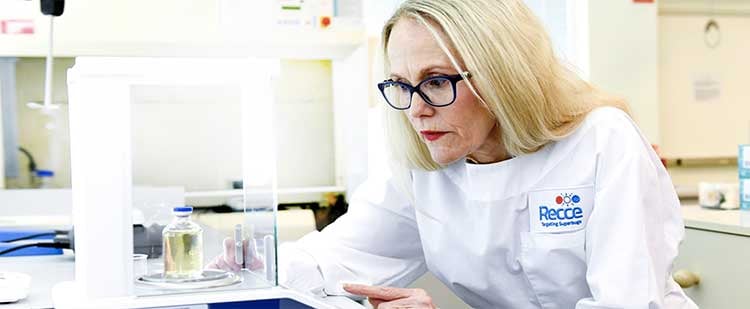Recce Pharmaceuticals Ltd (ASX:RCE) has achieved positive efficacy with RECCE 327 (R327) against Clostridium perfringens (C. perfringens) and Streptococcus pyogenes (S. pyogenes), two main strains of bacteria associated with necrotising fasciitis, also known as ‘flesheating’ disease.

The ‘flesheating’ disease is a life-threatening bacterial infection with a mortality rate of up to 80%.
The study was conducted by an independent contract research organisation to evaluate the in vitro bactericidal properties of R327 against C. perfringens and S. pyogenes.
Doses of R327 up to 4,800 parts per million (ppm) were tested, covering concentrations from 0.5x to 8x the minimum inhibitory concentration (MIC). The strains tested were: S. pyogenes – a susceptible strain; S. pyogenes – an erythromycin-resistant strain; and C. perfringens.
The R327 concentrations and time points that yielded a bactericidal effect are as follows:
- At hours six and 24, R327 showed bacteridical activity against the S. pyogenes susceptible strain at 1,200 ppm, 2,400 ppm and 4,800 ppm, while also achieving a BLOQ at the 24 hour count with concentrations of 2,400 ppm and 4,800 ppm (4X – 8X MIC).
- In addition to the susceptible strain, R327 achieved bactericidal effect at concentrations 600, 1,200 ppm and 2,400 ppm (2X – 8X MIC), while achieving a BLOQ at 2,400 ppm (8X MIC) in 24 hour counts.
- R327 further demonstrated bactericidal effect against C. perfringens at 500 ppm, 1,000 ppm, 2,000 ppm and 4,000 ppm (1X – 8X MIC) respectively, showing efficacy as early as 30 minutes, and a BLOQ at these concentrations in 24 hour counts.
Chief Scientific Officer, Michele Diliza, said S. pyogenes is a species of Gram-positive bacteria and can cause life-threatening infections such as Scarlet Fever, Bacteremia (bacteria in the blood), Pneumonia, Necrotizing Fasciitis, Myonecrosis and Streptococcal Toxic Shock Syndrome.
C. perfringens is also a Gram-positive pathogen that is a leading cause of myonecrosis and a species that thrives in nil/low oxygen environments, which can cause infections in diabetic wounds/ulcers – a common characteristic of bacterial anaerobes.
While necrotising fasciitis is a rare and extremely challenging disease for physicians to manage, it is highly traumatising for patients and their families, often leading to serious complications and even death,” Ms Diliza said.
“A broad spectrum anti-infective with rapid efficacy has the potential to significantly change the treatment paradigm and save lives. We have been thoroughly impressed with the efficacy that R327 has demonstrated thus far, as it reinforces our belief in the potential of this compound against such aggressive, life-threatening bacteria.”
Recce Pharmaceuticals is pioneering the development and commercialisation of New Classes of Synthetic Anti-Infectives designed to address the urgent global health problems of antibiotic resistant superbugs and emerging viral pathogens.
The company’s anti-infective pipeline is unique and comprised of broad-spectrum synthetic polymer antibiotics RECCE 327, RECCE 435, and RECCE 529 for viral infections with unique mechanisms of action against hyper-mutation on bacteria and viruses, respectively.
Patented lead candidate RECCE 327 as an intravenous therapy, is being developed for treatment of serious and potentially life-threatening infections including sepsis due to Gram-positive and Gram-negative bacteria including their superbug forms.
Recce’s new antibiotic compound, RECCE 435, has been formulated for oral use. The FDA has awarded RECCE 327 Qualified Infectious Disease Product designation under the Generating Antibiotic Initiatives Now (GAIN) Act – labelling it for Fast Track Designation, plus 10 years of market exclusivity post approval.




